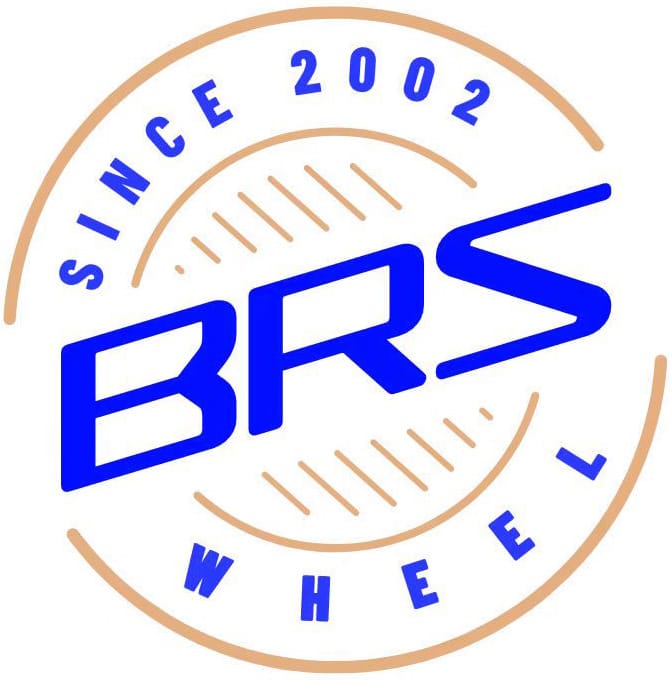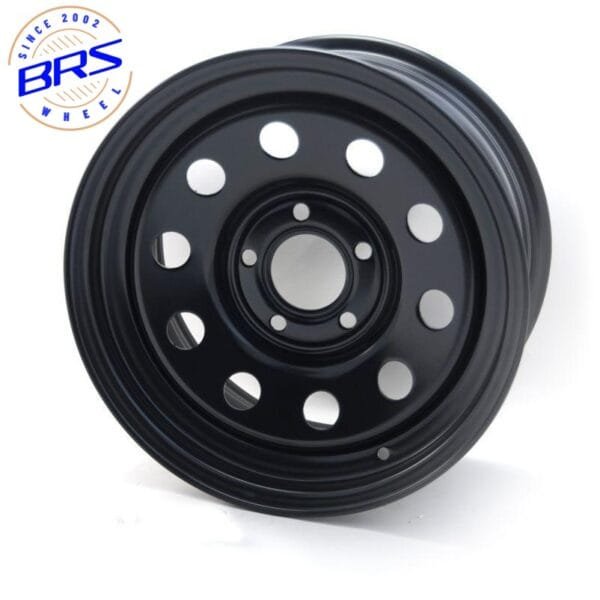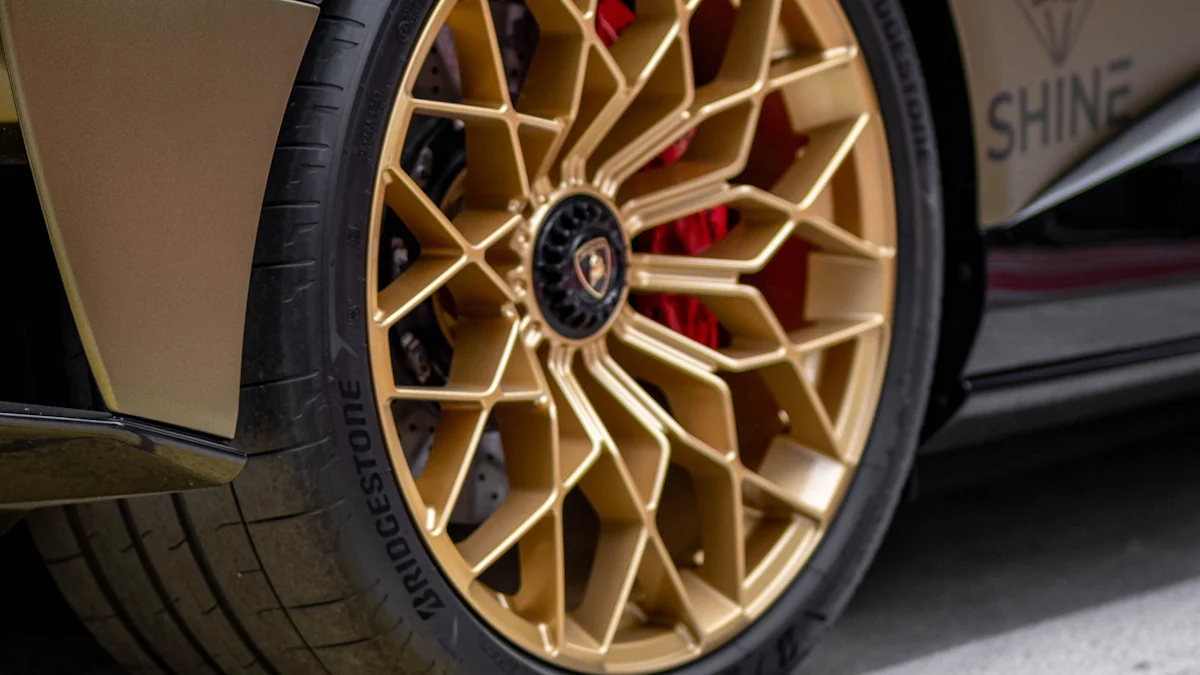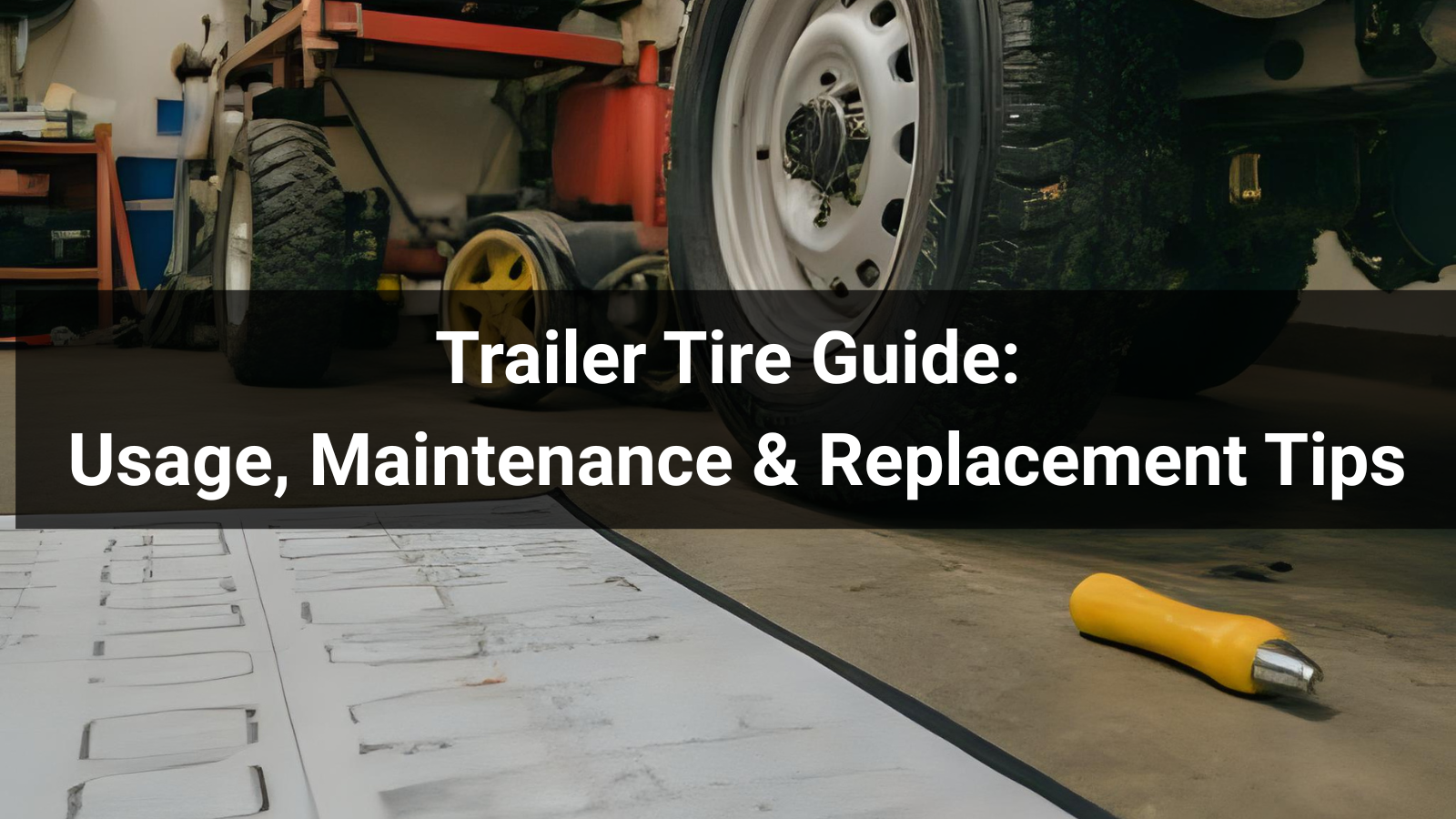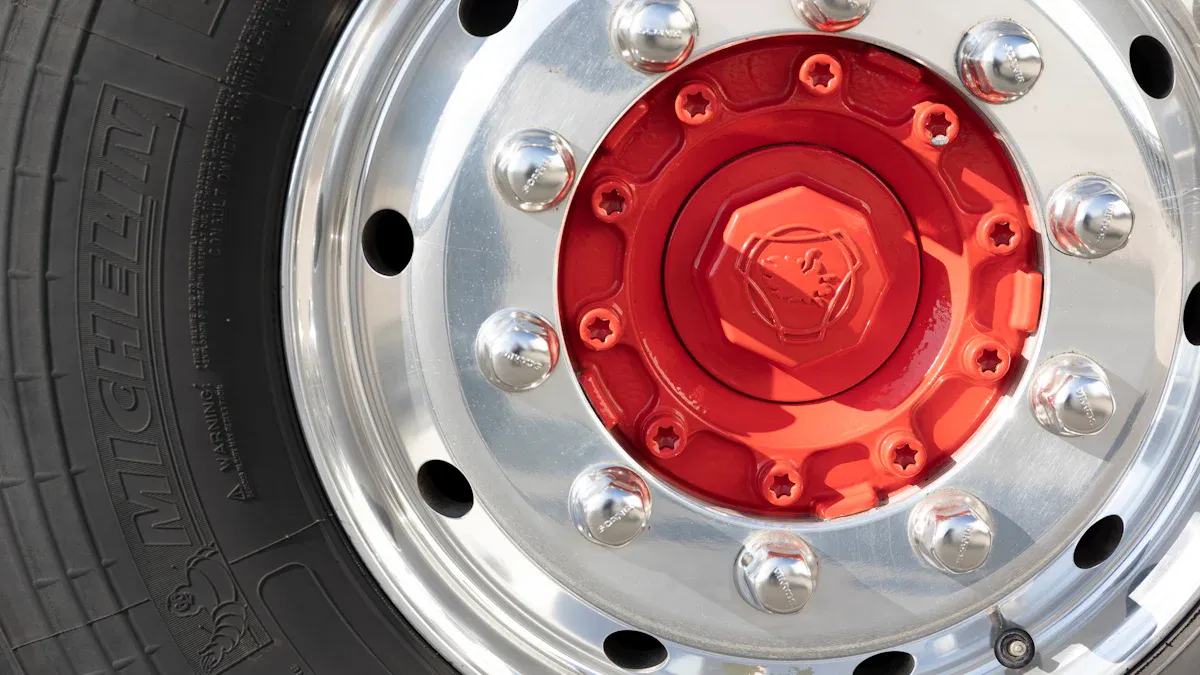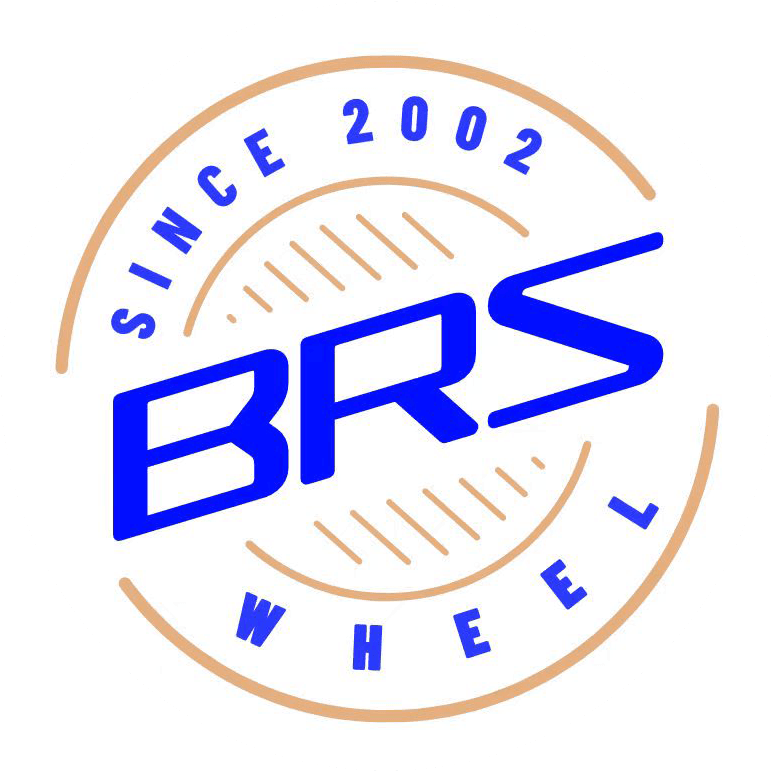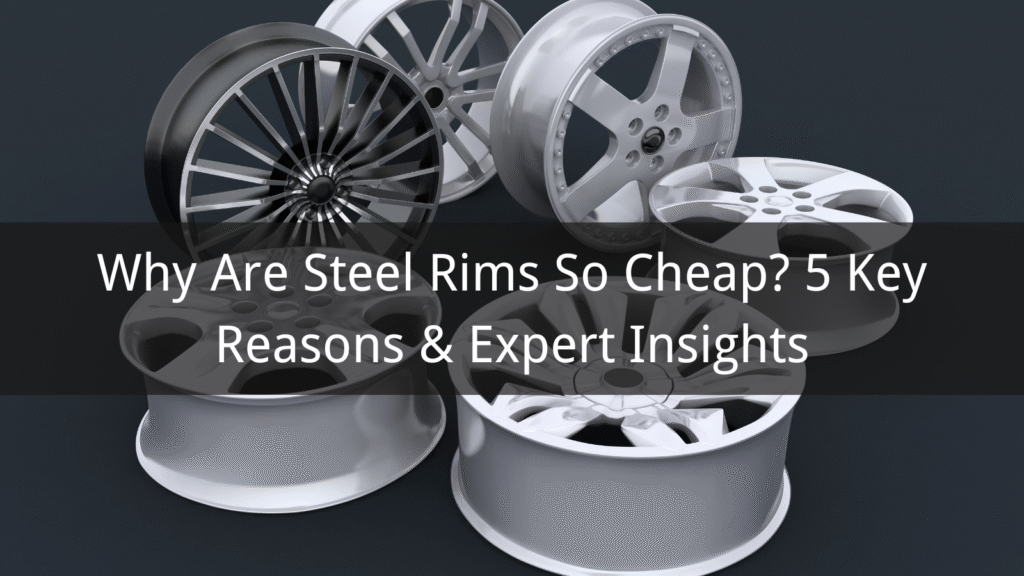
Contents
- Introduction: Why Do Steel Rims Cost Less?
- 1. Raw Materials: Steel vs Aluminum Alloys
- 2. Streamlined Manufacturing Processes
- 3. Simpler Design Means Lower Costs
- 4. Economies of Scale and High Production Volume
- 5. Minimal Finishing Steps Reduce Expense
- Are Cheap Steel Rims Durable?
- Who Should Choose Steel Rims?
- Why Choose BRS Steel Wheels
- Conclusion
- Contact Ningbo BRS Auto Parts
Introduction: Why Do Steel Rims Cost Less?
Have you ever wondered why steel rims are so cheap compared to shiny alloy or forged wheels? Does the lower price mean poor quality—or is there a practical explanation? In this detailed guide, we explore the top 5 reasons steel rims cost less, demystify the production process, and explain why steel wheels remain a favorite for drivers seeking value, strength, and reliability.
1. Raw Materials: Steel vs Aluminum Alloys
The cost difference starts at the source. Steel, especially mild or carbon steel, is produced on a global scale and benefits from lower extraction and processing costs. By contrast, aluminum alloys require mining bauxite, refining it into alumina, and then smelting it—a process that’s energy-intensive and costly.
At Ningbo BRS Auto Parts Co.,Ltd, we use high-quality raw steel that meets strict performance standards while keeping prices competitive. This ensures our wheels remain both affordable and trustworthy for customers worldwide.
2. Streamlined Manufacturing Processes
Steel rims are typically made by stamping, rolling, and welding—efficient processes that have been perfected over decades. These methods need less precision machinery compared to casting or forging alloy wheels. The result is a shorter production cycle and lower energy costs.
Our advanced production lines at BRS include multiple rim & disc lines and two fully automatic electrophoretic coating lines, maximizing efficiency and reducing labor costs. By refining each stage, we offer competitive prices without sacrificing quality.
3. Simpler Design Means Lower Costs
Steel rims usually feature straightforward, functional designs instead of intricate, multi-spoke patterns. Simple designs reduce:
- Tooling and mold complexity
- Production time
- Quality control steps needed for fine detailing
This design simplicity makes steel rims easier and cheaper to produce, while still providing the strength needed for everyday driving and tough conditions.
4. Economies of Scale and High Production Volume
Steel wheels are produced in enormous quantities for OEM, commercial, and aftermarket needs. This high volume means manufacturers can spread fixed costs over more units, lowering the cost per wheel.
Since our founding in 2002, BRS Auto Parts has grown from a 5,000 m² factory to over 100,000 m². Thanks to large-scale operations, we efficiently meet demand from domestic and international markets while maintaining competitive prices.
5. Minimal Finishing Steps Reduce Expense
Alloy wheels often require additional finishing—polishing, CNC machining, or multi-color painting—to achieve their look. Steel rims, however, typically use protective coatings like electrophoretic paint (E-coating) and powder coating, which are simpler and faster to apply.
At BRS, we enhance quality through a shot blasting process to create smooth surfaces for better coating adhesion, boosting rust resistance without driving up cost.
Are Cheap Steel Rims Durable?
This is a common question: Are cheap steel rims good enough? In most cases, yes—steel wheels are known for toughness. Their higher weight adds strength, making them less likely to crack on impact. Even if bent, steel rims can often be repaired instead of replaced.
At Ningbo BRS Auto Parts Co.,Ltd, we don’t just offer cheap steel rims—we offer precision-engineered wheels that pass rigorous in-house testing, ensuring durability for urban driving, off-road use, and commercial applications.
Who Should Choose Steel Rims?
Steel rims remain popular for:
- 🚜 Farmers and off-road drivers who value strength over style
- ❄️ Winter tire setups (where road salt can damage alloy finishes)
- 🚛 Commercial vehicles and fleets, where cost-effectiveness matters
- 🏞️ Utility vehicles, trailers, and ATVs that face harsh conditions
For drivers focused on lightweight performance or custom looks, alloys may be better. But for cost, repairability, and rugged reliability, steel wheels win.
Why Choose BRS Steel Wheels
At Ningbo BRS Auto Parts Co.,Ltd, affordability never comes at the cost of quality. We’re the first strategic partner of Geely Group, founded in 2002, and have over 200 employees dedicated to excellence.
Why customers trust BRS:
- ✅ Precision Engineering: 2D, 3D, and CAE analysis for smarter designs
- 🧪 In-house wheel testing lab: Guaranteeing safety and compliance
- ⚙️ Advanced production: Full-automatic coating and modern lines
- 🎨 Customizable: Trailer wheels, off-road rims, and more
From the first cut to final coating, every BRS wheel is built to last.
Conclusion
So, why are steel rims so cheap? It’s not a sign of weakness—it’s the result of:
- Lower raw material costs
- Efficient production methods
- Simpler yet functional designs
- High-volume manufacturing
- Cost-saving finishing processes
Thanks to modern technology, steel rims remain durable and practical, especially when engineered by experienced manufacturers like BRS Auto Parts.
Contact Ningbo BRS Auto Parts
- 🌐 Website: https://brsrim.com
- 📧 Email: carrie@brsautoparts.com
- 📞 Phone / WhatsApp: +86 19810666863
BRS – High-Quality, Affordable Steel Wheels Since 2002.
